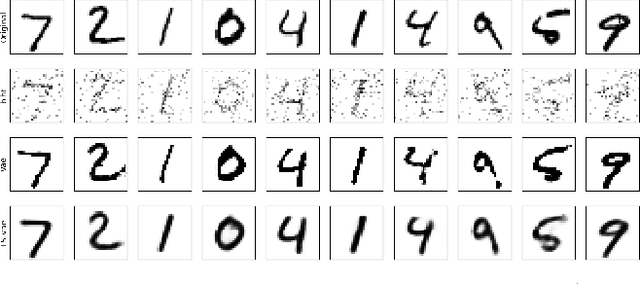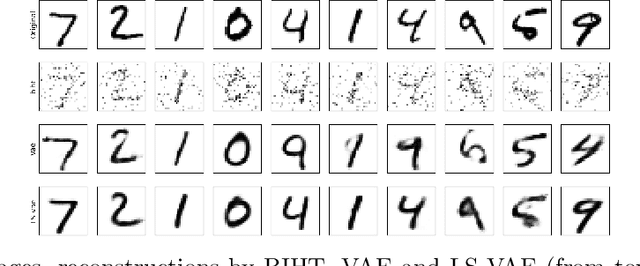Just Least Squares: Binary Compressive Sampling with Low Generative Intrinsic Dimension
Paper and Code
Nov 29, 2021



In this paper, we consider recovering $n$ dimensional signals from $m$ binary measurements corrupted by noises and sign flips under the assumption that the target signals have low generative intrinsic dimension, i.e., the target signals can be approximately generated via an $L$-Lipschitz generator $G: \mathbb{R}^k\rightarrow\mathbb{R}^{n}, k\ll n$. Although the binary measurements model is highly nonlinear, we propose a least square decoder and prove that, up to a constant $c$, with high probability, the least square decoder achieves a sharp estimation error $\mathcal{O} (\sqrt{\frac{k\log (Ln)}{m}})$ as long as $m\geq \mathcal{O}( k\log (Ln))$. Extensive numerical simulations and comparisons with state-of-the-art methods demonstrated the least square decoder is robust to noise and sign flips, as indicated by our theory. By constructing a ReLU network with properly chosen depth and width, we verify the (approximately) deep generative prior, which is of independent interest.
 Add to Chrome
Add to Chrome Add to Firefox
Add to Firefox Add to Edge
Add to Edge